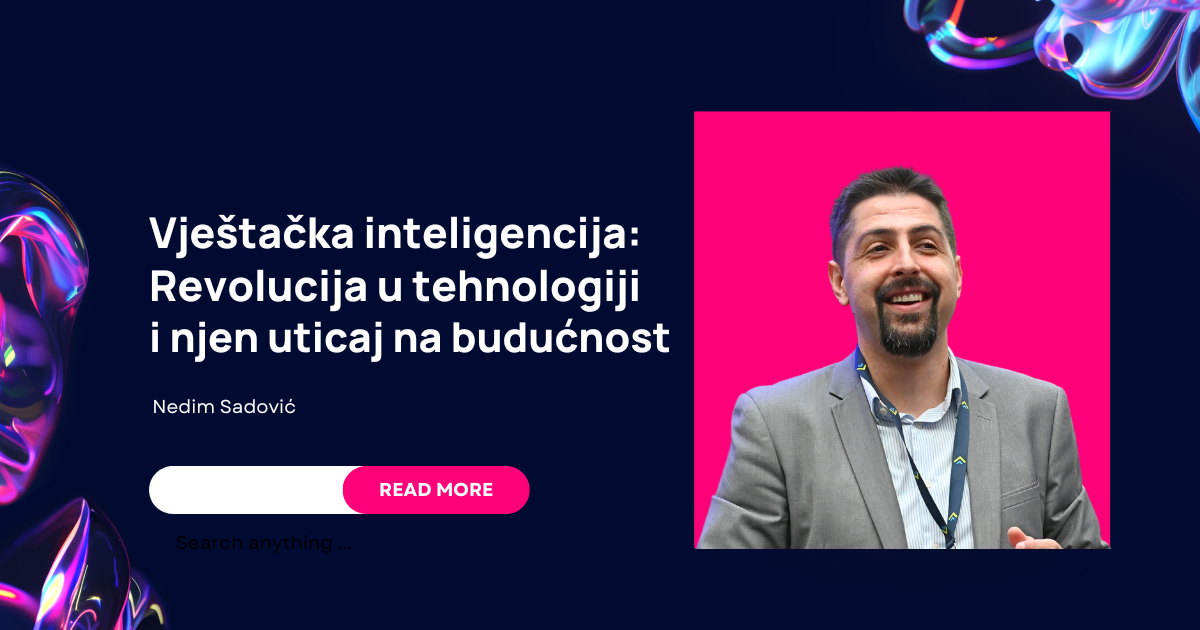
Artificial Intelligence (AI) is rapidly evolving and becoming an integral part of many aspects of our daily lives. From automating routine tasks to facilitating complex decisions, AI promises a revolution like we’ve never seen before. In this blog, we will explore the benefits and drawbacks of this fascinating technology, its current applications, and its potential impact on the future of the world, including Bosnia and Herzegovina.
One of the biggest benefits of AI is its ability to automate routine and repetitive tasks. This allows people to focus on more creative and complex activities, elevating efficiency and productivity to a new level. Additionally, AI technologies can perform tasks with greater precision and accuracy, reducing the possibility of errors and improving overall results.
AI can analyze vast amounts of data in a short time, enabling informed decision-making that can enhance business processes. Personalization is another key advantage: AI allows products and services to be tailored to the specific needs and preferences of users, thereby improving the user experience.
However, AI is not without its challenges. One major drawback is the potential for job losses, especially in roles that are routine and do not require special skills. Moreover, the use of large amounts of data to train AI models can raise concerns about user privacy. Ethical issues are also significant - it is essential to carefully consider the ethical implications of AI decisions, especially in sectors like healthcare and criminal justice. Finally, the development and implementation of AI solutions can be costly, posing a barrier for small businesses.
In Bosnia and Herzegovina, AI is gradually emerging, mainly through IT companies and academic institutions. Although still in its early stages, the application of AI in BiH has enormous potential to enhance various sectors such as healthcare, agriculture, manufacturing, and public administration. By properly utilizing AI technologies, the IT community in BiH can achieve significant increases in efficiency, create new jobs, and improve the quality of services.
One example of artificial intelligence (AI) application in Bosnia and Herzegovina comes from the healthcare sector. Specifically, the Clinical Center of the University of Sarajevo uses AI technology to enhance patient diagnostics and treatment.
The Clinical Center of the University of Sarajevo has implemented an AI system to assist in the early diagnosis of breast cancer. Using advanced machine learning algorithms and image processing, this system can automatically analyze mammogram images, identifying potential abnormalities that could indicate the presence of a tumor.
The system first collects and stores digital mammogram images taken during patient exams. Then, AI algorithms analyze these images, searching for specific patterns and markers that may indicate the presence of tumors or other abnormalities. Based on the analysis, the system highlights suspicious areas on the images and marks them for further examination by radiologists. Radiologists review the marked images, using the AI software as a second pair of eyes to help them make more accurate diagnoses.
AI can help detect cancer in its early stages when treatment is most effective. The high precision of AI algorithms reduces the possibility of errors and oversights. Automating image analysis enables faster processing and diagnosis, speeding up the treatment process. Radiologists can be more confident in their diagnoses thanks to the additional analysis provided by the AI system.
This example demonstrates how AI can significantly improve the healthcare sector in BiH, enabling faster, more accurate, and more efficient diagnostic processes. Using AI technology in this context can reduce mortality rates among breast cancer patients, giving them a better chance for early detection and successful treatment.
The application of artificial intelligence in healthcare in BiH is already bringing real benefits, and this is just one of many potential examples of how AI can enhance various industries. With the continued development of technology, AI is expected to play even greater and more significant roles in advancing the quality and efficiency of services within the country.
AI is expected to continue accelerating technological progress, enabling new innovations in areas such as the Internet of Things (IoT), 5G networks, biotechnology, and many others. The application of AI is likely to radically change the way industries operate, increasing efficiency, reducing costs, and enabling new forms of work and interaction.
If you are interested in the topic of artificial intelligence or any other innovative technology, we invite you to submit your lecture for the upcoming NETWORK conference. This is an ideal opportunity to share your knowledge, experiences, and ideas with industry colleagues. Your contribution can be crucial for the development and improvement of the IT community in our country.
Register and be part of the technological future that awaits us.